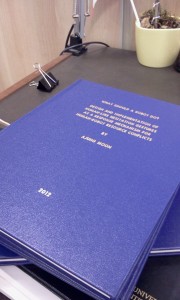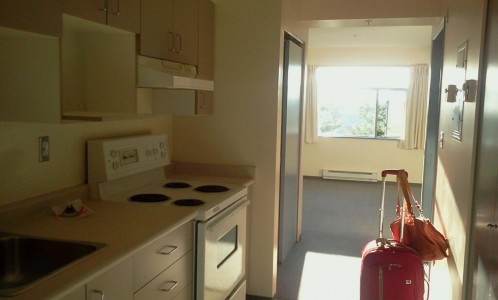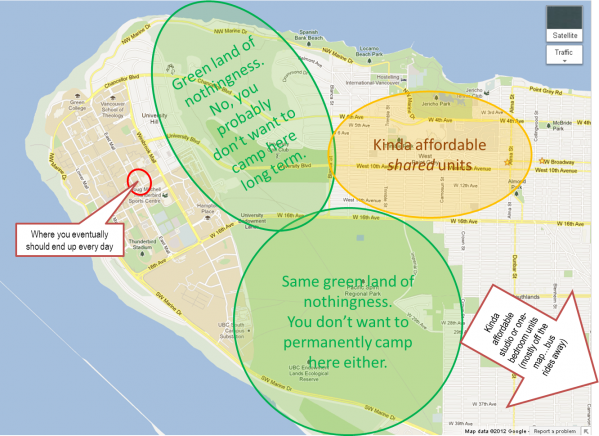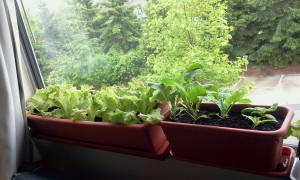So….
I woke up super early in the morning to catch up on work. I just could not get all the stuff done yesterday (and during the Thanksgiving weekend for that matter) and decided that I’ll just start my workday early.
2:30 am my alarm clock went off, and I was off to a good start. Super dark outside, super quiet everywhere, slightly creepy with only a desk lamp lighting the entire half-basement lab before dusk. Perfect (?) condition to concentrate on stuff that I’ve procrastinating on.
This strategy to getting stuff done doesn’t always work, because I become very efficient at procrastinating as well. And this morning was a mix of both. I got quite a bit of work done (although not as much as I had hoped to, as is always the case), and quite a bit of nonessential chores done such as switching my phone plan etc.
One of these non-essential chores was updating the ‘about’ page on this blog. I hadn’t looked at it for a while, and it still said that I am a second year MASc student. That means it was overdue for like… many months.
So while my hunger for breakfast pulled my concentration away from the type of work I should be doing, I decided to update it. Well, modify it is more like it. Most of the contents are the same, except for the things that aren’t true anymore. And of course, I didn’t change my profile picture, since I don’t mind misguiding the audience of my age with my lack of dark circles.
But this modification process reminded me of some of the changes that have happened while I transitioned from a MASc to a PhD student. For example, I am no longer the Communications and Public Relations Director for MEGA (the UBC Mechanical Engineering Grads Association). Kristy have been doing a great job on that role for quite some time now. And my thesis isn’t particularly on making robots hesitate — although an extension of that project is still on-going. In fact, I still haven’t decided what I want to do for my PhD.
I have some really exciting ideas, but haven’t done much of pilot testing. I have some exciting projects going on, but I am not sure if they will become a main ingredient for my thesis work either.
Yes. You could say that I have uncertainties galore, and that I should take some active steps to make things a little bit more certain. But don’t worry. I’ll get there.
So, while I was on this road to dangerous spiral of procrastination, I decided to look up what my thoughts were when I had just finished my MASc thesis. I had just returned from Miami (went there for a conference of course), and wrote this post outlining some of the things I wanted to change about me and my lifestyle.
The first item to tackle was my workaholic tendency. Just the thought of spending an extra day in Miami to chill and relax used to freak me out, some of my friends hadn’t pulled me aside to talk to me about their personal problems/issues for months because I was so busy with the thesis (what a terrible state to be in!!!), and everything and everyone around me seemed to work around my schedule and how my thesis dominated my life. So, back in April, I decided to change that about me. And I think I’ve been staying away from my workaholic attitude ever since then.
I don’t think about making the most out of every minute of my every day in the work-related sense of things. I have taken many weekends off, and attend more social events than I used to last year. Now it’s a bit hard to balance it, and to get lots of work done while finding time to chill. But don’t worry (again), I’m working on it.

My newly planted chamomile flowers. I know it’s hard to see, but there are sprouts to be found. I am serious!
Second item was to cherish little hobbies outside of work, such as gardening. I have too many of these hobbies now, and gardening is still an ongoing thing for me. And I do find that having these little hobbies are good for your mental health. During undergrad, talking and studying roboethics used to be a hobby of mine (nerdy, I know). And then I thought “hey, wouldn’t it be great if my hobby could be my main thing?” and so I made my hobby one of my main research topics. The idea itself was great, but that kind of robbed me of my list of activities I could classify as hobbies…! Now, I have these really non-work-related things like gardening, crocheting, and painting to fill up that hobby list again.
There are some other things I’ve noticed about me that are different from a few months ago as well. As part of my journey to find the next thesis topic I will be married to, I am starting to think big and reading books that weren’t within my range before.
What’s more, I’ve even started thinking about my 3.5 year plan. On paper, I am already past half way point of my first year of PhD. That means I am going to try and graduate within the next 3.5 years. There are so many things I want to do within these years that I couldn’t have imagined to do when I had just started my master’s. When do I want to do what? How much of my thesis should be done by when? And most importantly, what are the things I want to have accomplished by the time I receive my doctoral degree? Chances are, these things will change as time passes. But provided that my goals at the beginning of my masters were quite modest compared to what I was able to accomplish in terms of my personal goals and career goals, I think thinking big pictures in the beginning is the way to go.
In many ways than one, I am busy dreaming, planning, and thinking about the future now that I am giving myself some extra time to breathe despite the ever looming deadlines. Now, if only I can get one of those superpowers to make me stop procrastinating…


 Follow
Follow



